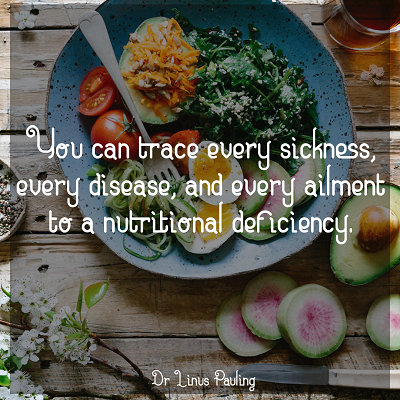 Nutritional deficiency is something not many people discuss. Why? Because admitting you may be deficient in something puts you in a position of embarrassment, equating it with being unable to eat properly.
Nutritional deficiency is something not many people discuss. Why? Because admitting you may be deficient in something puts you in a position of embarrassment, equating it with being unable to eat properly.
However, this is far from the truth. You can have what you believe is the richest diet, even though it may be lacking in many nutrients. These deficiencies are bad during any phase of life, but tend to take its toll mainly on children and the elderly.
Nutrient deficiencies do not always manifest themselves early on, and many only appear when other symptoms become obvious. The most common deficiencies to keep an eye out for include the following:
.
Calcium
It has been preached for years that this mineral is extremely important for bone health, but yet many people (especially the elderly) do not get enough of it in their diet. Women are prone to feeling the effects of calcium deficiency the hardest, as they are predisposed to development of osteoporosis upon loss of the protective effect of estrogen. Milk is a decent source of calcium and vitamin D, but in case you are in doubt, an add on supplement may be good.
Vitamin D
If you live in a country with year round radiant sunshine, then deficiency of this vitamin is unlikely. Why? Because our skin produces vitamin D naturally from sunlight, with 15 minutes exposure daily normally sufficient for your recommended daily production.
However, countries in the temperate or colder regions may have difficulty synthesizing sufficient vitamin D from sunlight, as in winter months sunlight is scarce. As such, it is important to supplement with vitamin D. calcium also requires vitamin D for absorption, so your best bet may be using a supplement containing both.
Iodine
This micro mineral is actually a popular source of nutrient deficiency, negatively affecting metabolism, bone health and more. However, owing to its rather limited sources from diet, it is a common deficiency that may manifest as poor energy and unexplained weight gain and mood changes.
Seafood is the best source of iodine, but if that doesn’t work for you, there are many salt produced that come enhanced with iodine. Thus, it becomes a simple matter of cooking with the salt to meet your daily requirements.
Omega-3 Fats
Omega-3 fats are important for a multitude of body functions, its most important being cell wall integrity, heart health and anti-inflammatory benefits. Omega-3 and 6 shares a balance, with too much omega-6 resulting in pro-inflammatory states.
Chronic inflammatory states are implicated in heart disease and neuro-degenerative conditions such as Alzheimer’s and Parkinson’s. Diets high in cold water fish consumption are beneficial to overall health, or at a minimum cover your bases with a fish oil supplement.
Potassium
Though not often deficient in the diet, there have been clear cut associations between a diet not supplying enough potassium and heart and kidney disease. Potassium also plays an important role in maintaining bone health, electrolytes imbalances and promotes nerve impulses. Potassium can easily be obtained from diet, from foods such as potatoes and bananas. If carbohydrates are a concern, consume a potassium supplement instead.
Iron
Iron is important for the production of red blood cells, and prevention of anemia. Iron deficiency is common, especially if vegan, with symptoms resembling iodine deficiency. Low energy, pale skin and ease to fatigue are common.
Conclusion
Meeting your nutrient requirements as a senior is not as easy as it is for a young person, simply because of appetite and metabolic changes. If you do not eat enough, you are likely to develop some sort of deficiency, making a multi-vitamin essential. Choose a natural, whole food type of multivitamin supplement for men or women over fifty. Don’t avoid usage because you “think” you are getting enough from diet – it scarcely works that way.






